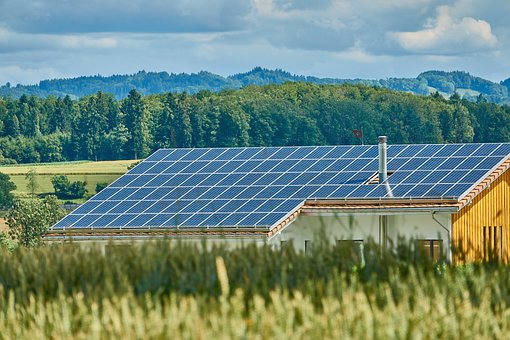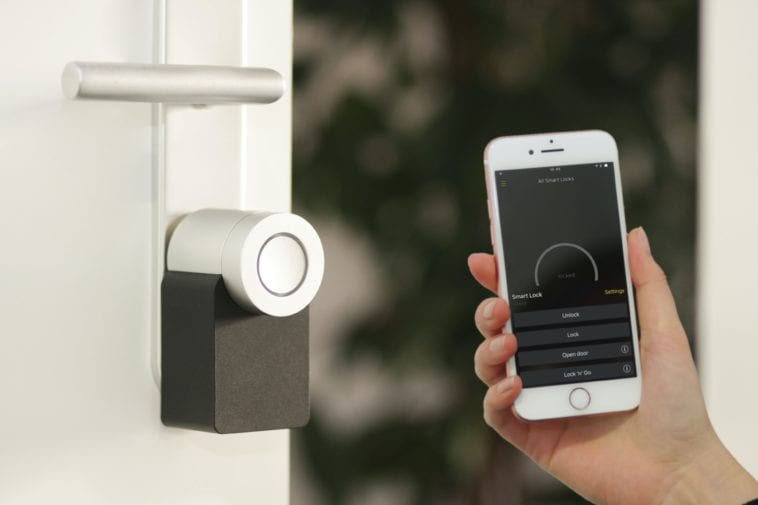A smart home certainly makes your life easier. It uses technology such as the Internet of Things to integrate various systems within your home. You can control functions such as heating and lighting simply by sending an alert through your smartphone. It even enables you to remotely operate all these devices when you’re hundreds of miles from home.
But most importantly, smart technology helps your home maintain an eco-friendly, green profile. Having a smart home should greatly reduce the impact it might have on the environment.
How Does a Smart Home Work?

Setting up your home with smart technology begins with an internet hub. It can be a separate control panel, but it’s more likely to be an app you can access online. It lets you control all your home’s functions from just one place. Then you’ll need to start replacing items such as doorbells, locks, and lighting so they are compatible with receiving commands.
When you want something done such as turning on the heating, you send instructions through your smart device. For even more convenience, you can establish a routine and set timers for your smart hub to perform tasks on your behalf. But how does this support green living?
What is Green Living?

Green living aims to enjoy a modern, technological lifestyle that harmonizes with nature. You get all the benefits of a home equipped with sophisticated amenities. But in addition, your home follows green principles. These include conserving energy and using sustainable materials. The objective is to reduce carbon emissions, save resources and provide your family with a healthy home. One of the first things to consider is improving your electricity supply.
Converting to Solar Energy

Solar power is an effective alternative to burning fossil fuels. The sun supplies free power that can be converted to electrical energy. Many US cities enjoy relentless sunshine. The sunniest of all is Phoenix with an average of 85.80% of sunshine throughout the year.
But even if you live in a city such as Pittsburgh that only sees 45.50% of the sun, solar panels can still be advantageous. Photovoltaic solar panels continue absorbing power from the sun’s rays even on cloudy days. Solar energy can supply you with economical electricity. The power can also be stored for later use. Since 2019, American homes have been converting to sustainable solar energy at the rate of one million per annum.
Energy-Efficient Lighting

Once you’ve made an effort to add solar panels to your roof, you don’t want to waste the energy. One of the most effective ways to save money and power is by installing smart LED lighting. Every time you leave a traditional light bulb switched on, it wastes energy until you remember to turn it off. With a smart system, you can be sent an alert informing you of an unnecessary lighting error.
And amazingly, even if you are on the other side of town, you can remotely turn the light off through your smartphone. LED lights have an energy efficiency of up to five times that of a traditional incandescent bulb. They provide up to 50,000 hours of illumination and can last for many years. They also achieve an optimal level of brightness much faster.
Gaining Temperature Control

Saving energy is the main objective of a green home. And using smart technology can help you gain control over the air temperature throughout the building. A smart thermostat is far more sophisticated than a standard version. Some models include technology that detects whether anyone is in a particular room. It then adjusts the heating level accordingly to prevent wasting valuable heat in an empty room.
Alternatively, you can send remote instructions on altering the heat or air conditioning. Automated systems are highly beneficial if you and your family tend to have regular habits. You can use timers to set your smart hub’s format. It can then turn heating on at an appropriate time to match your times.
Convenience
A smart home is so convenient. It provides you with opportunities to reorganize your daily schedules. The system can integrate with appliances such as slow cookers, washing machines, and lighting. It allows you to control many functions within your home even when you are absent. You can complete many chores, such as activating the washing machine while you’re at work.
When you are traveling home, you can activate your stove to begin cooking a prepared meal. When you arrive, you can be greeted by lights that have just been switched on, warm rooms, and a delicious home-cooked meal.
Water Economy

Your smart home monitors every function within your home. It helps to save water through sensors that detect leaks in the pipework. This is particularly useful if you have a basement or attic space that you rarely enter. Your smart system can also adjust the amount of water your toilet needs to flush. There are also low-flow showerheads that save gallons of water every time you use them.
Saving Money
The smart home increases the amount of money you can save by preventing energy loss. It operates different functions without wasting time or energy leading to increased savings in your household budget.
Smart technology helps your home stay greener by reducing waste. Every minute that your electrical appliances are on standby increases your energy bills. By detecting where you can save energy helps you reduce your expenditure. Green homes are so much more economical to run when they are controlled by smart technology.
Stress-Free Lifestyle
Additional functions can be controlled by sending messages to your smart hub. There are also systems with voice control that let you issue verbal commands while you’re relaxing. Automatic window blinds and drapes can be opened and closed without you moving from your comfortable sofa. You can even speak to a robotic vacuum cleaner to complete cleaning chores while you read a book.
Conclusion
When you use smart technology, your home becomes a much greener place. It helps to make the most of your energy supply by preventing unnecessary waste. Using solar energy and monitoring your water usage, your home helps conserve natural resources. A smart green home is relaxing and healthy as it provides an organized, stress-free environment. Smart technology makes your green home efficient.
About the Guest Author
Ray Brosnan is the owner of Brosnan Property Solutions, a property maintenance company that has helped numerous homes and businesses set up their homes to be Smart Homes.




